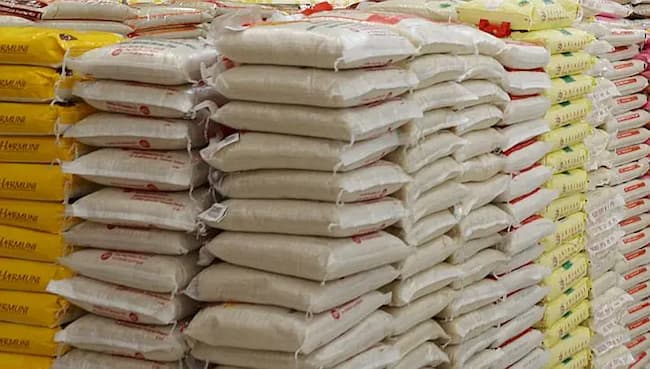The Niger Delta Development Commission (NDDC) has embarked on a collaborative effort with the Rice Farmers Association of Nigeria (RIFAN) aimed at fortifying food security within the region.
In a statement issued by Pius Ughakpoteni, the Director of Corporate Affairs at NDDC, it was revealed that the Managing Director of the commission, Dr. Samuel Ogbuku, made this declaration during a strategic meeting held with a delegation from the farmers association. The delegation, spearheaded by Mr. Victor Korede, Deputy National President of RIFAN, convened in Port Harcourt, Rivers State.
Representing Dr. Ogbuku at the meeting was Sir Victor Antai, the NDDC Executive Director of Projects, who expressed the commission’s eagerness to collaborate with RIFAN in advancing rice cultivation initiatives across the region.
Antai conveyed the commission’s readiness, stating, “With the renewed vigor within NDDC, we are keen on forging a partnership with RIFAN. We operate two rice mills, one in Elele-Alimi, Rivers State, and the other in Mbiabet-Ikpe, Akwa Ibom State. We are particularly intrigued by the smart agriculture approach advocated by the farmers’ association.”
He emphasized the commitment of the NDDC Managing Director towards executing transformative projects that would directly benefit the populace of the Niger Delta region.
Additionally, the NDDC introduced a flagship program titled Holistic Opportunities, Projects, and Engagement (HOPE), with agriculture as a focal point, in alignment with President Bola Tinubu’s ‘Renewed Hope Agenda’.
Antai elucidated on the HOPE initiative, stating, “The Project HOPE initiative seeks to engage the youths of the region by creating employment opportunities for them. We have compiled data on the youths in the region, and a significant number have expressed interest in agriculture. NDDC is steadfast in its commitment to ensuring food security in the Niger Delta region, and we believe engaging youths in agriculture is pivotal to achieving this objective.”
The NDDC boss highlighted the agricultural potential of the Niger Delta region, citing favorable factors such as arable wetlands, abundant rainfall, and ecological conditions conducive to rice cultivation.
He remarked, “The Niger Delta region offers ideal conditions for rice cultivation, with the ability to harvest rice at least twice within a farming season. It is imperative for us to actively involve rice farmers, as they have demonstrated a strong inclination to increase rice production.”
Antai emphasized the commission’s strategic shift away from reliance on the oil economy towards the agricultural sector, aiming to transition from subsistence farming to mechanized agriculture to harness the region’s vast opportunities.
During the meeting, Emmanuel Anoh, RIFAN’s South-South Vice President, expressed the association’s commitment to showcasing the possibility of achieving self-sufficiency in food production within the country through local rice production.
Anoh elucidated, “We are here to explore collaboration with NDDC on enhancing food production within the region and contributing to the President’s vision of self-sufficiency in food production. Rice, being a staple crop globally, is consumed by households regularly.”













